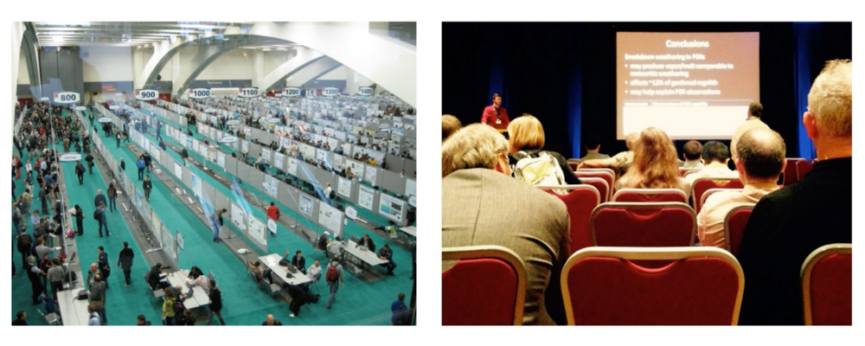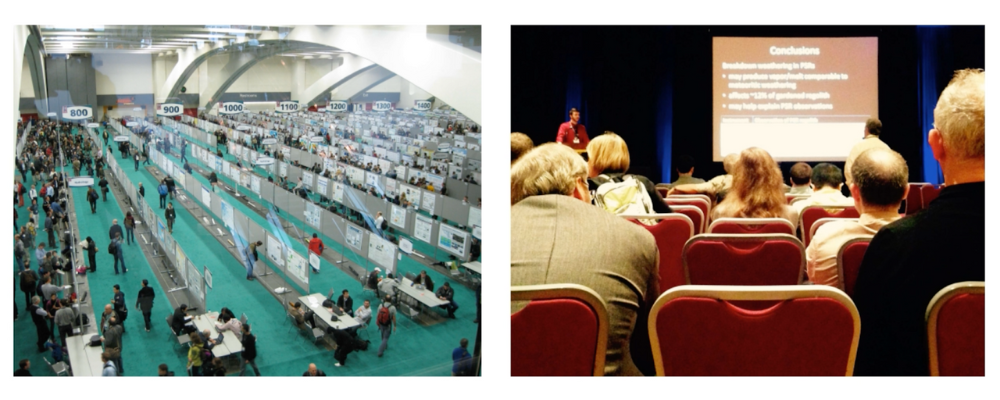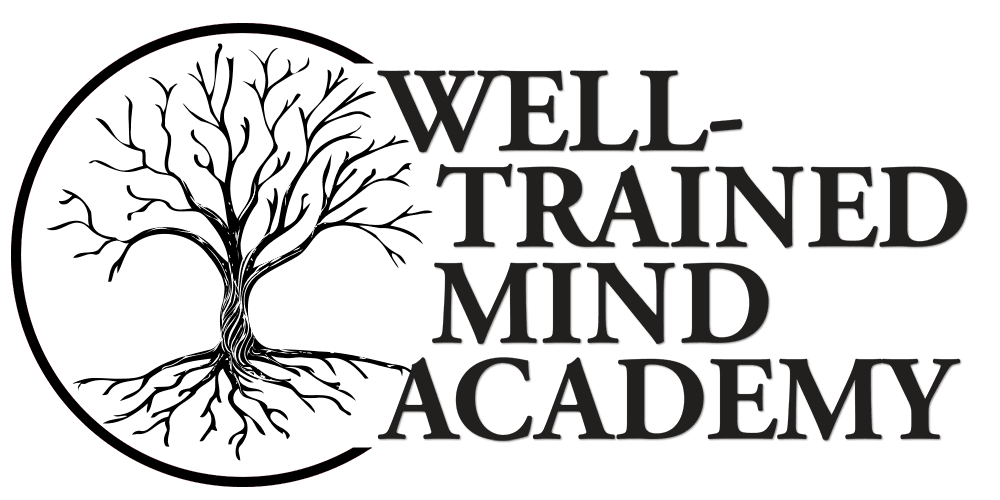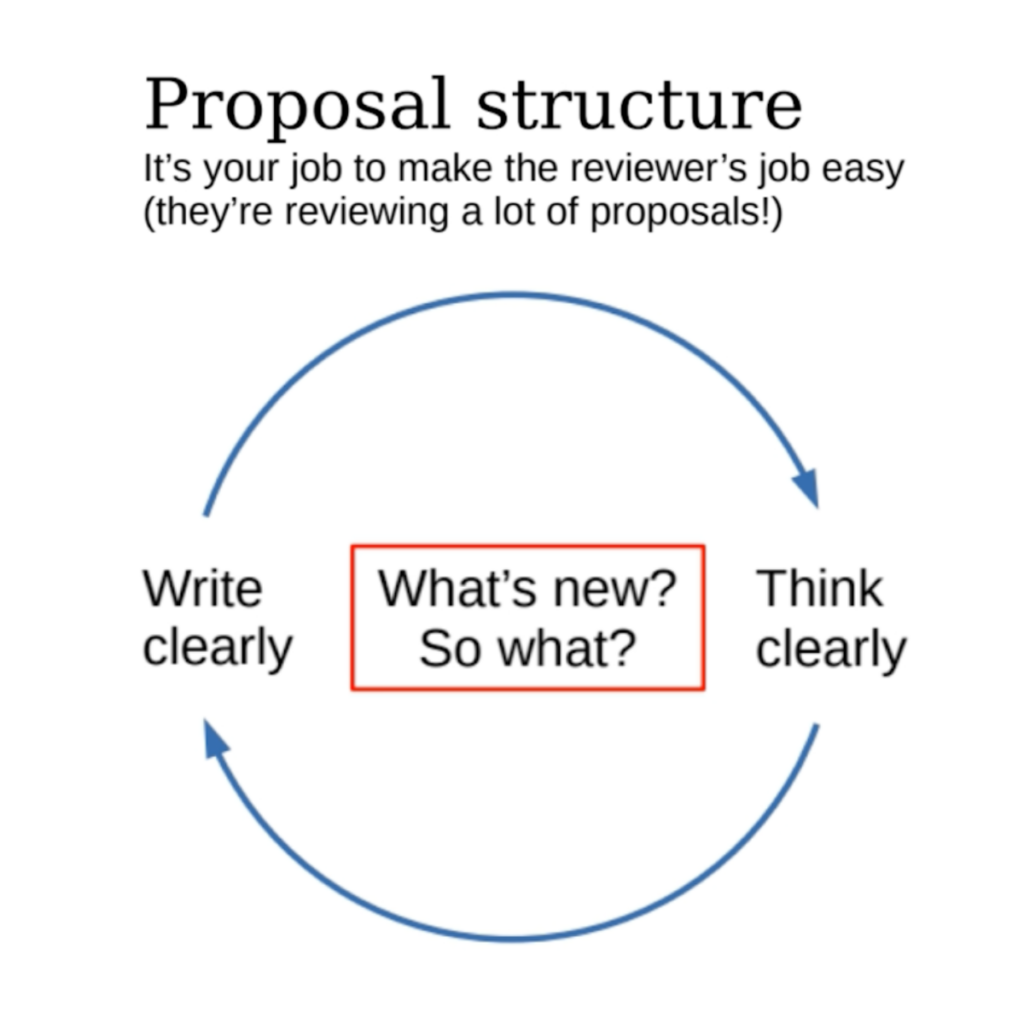Communicating Science with Purpose: Dr. Andrew Jordan’s Strategies for Effective Proposals and Presentations

In this second installment of the Well-Trained Mind Academy’s science writing workshop series, Dr. Andrew Jordan added to his valuable advice for writing scientific papers, this time focusing on scientific presentations and proposals, talks, and posters.
Building on the principles introduced in the first workshop, this session offered students practical insights into how to communicate scientific ideas effectively in various professional settings.
Dr. Jordan started by explaining how proposals differ from journal articles, first guiding students through the proposal process.
In proposals, the introduction has to grab the reader’s attention quickly.
A strong opening and a clear, engaging narrative are crucial for standing out, especially when submitting to competitive grant programs.
Dr. Jordan emphasized that while a journal article can unfold more gradually, a proposal needs to make its point early, because you want to be able to secure a proposal reviewer who is going to “fight for your proposal in the panel.”
Contents
Keep Science Presentations and Posters Simple To Win Audiences
When discussing science presentations, talks, and posters, Dr. Jordan encouraged simplicity and focus.
Rather than overwhelming the audience with every detail, he advised presenters to stick to key points and leave in-depth analysis for later discussions.
Shorter Science Presentations Provide Better Focus
Brevity is also key when making presentations to an audience.
Dr. Jordan’s guideline? Spend no more than a minute per slide during science presentations, and save deeper dives for post-talk conversations. This approach keeps the audience engaged, even if they’re not experts in the field.

Another critical element of effective presentations is time management. Dr. Jordan emphasized the importance of practicing presentations in advance to ensure they fit within the allotted time. Staying on schedule helps maintain audience engagement and reflects professionalism
Dr. Jordan shared some helpful resources for students and others seeking to improve their presentations, including articles from The Planetary Society covering tips for presenting to a scientific audience and how to design scientific posters, and The Non-Designer’s Design Book by Robin Williams. These materials, he noted, are essential for conveying complex scientific information in a clear, visually effective way.
Start Simple, and Add Details Based On Audience Expertise
The session wrapped up with a Q&A segment, where students had the opportunity to ask about a range of topics, from virtual presentations to writing style. Dr. Jordan offered practical advice on how to handle online communication platforms, such as those used in the seminar, and how to adapt presentations for remote audiences—a skill that has become increasingly important.
When communicating with non-experts, Dr. Jordan advised gauging the audience’s interest and adjusting accordingly. He suggested starting with a simple explanation and then building on it if the audience is engaged. This approach keeps the conversation accessible without oversimplifying the material.
WTMA Students Feel More Confident About Their Presentations
By the end of the workshop, students had a clearer understanding of how to communicate scientific research effectively, whether writing proposals, presenting at conferences, or designing posters. The strategies Dr. Jordan shared will help students succeed not only in science but in any field where clear, persuasive communication is essential.
Interested in exploring a career as a researcher or scientist? Want to learn more about presenting your work in public? Here are some of the Well-Trained Mind Academy classes that will help achieve those goals!


